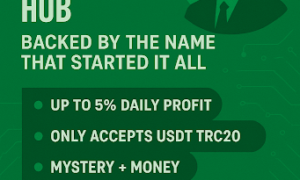Running an online store means you’ve probably got your hands full—product listings, customer support, marketing, inventory…the list never ends. But one thing that can quietly undo all your hard work is a cyber attack.
Cyber attacks aren’t solely the concern of big brand names. In reality, smaller online stores are actually an easy target since they generally have weak security. And when an attack occurs, it has the potential to do more than just result in downtime—it can shatter customer trust and harm your business in the long run.
So, how do you make your store secure without being a cybersecurity pro? In this article, we’ll go through a few basic steps that can really tighten your website defenses.
Build a Strong Foundation for Security
A secure eCommerce site begins with building a solid foundation. These are the basic steps to get you on your way:
Use SSL Encryption
If your site isn’t already SSL-enabled (the small padlock in the address bar), it’s time to get on that. SSL encrypts data passed between your users and your website, and is particularly vital for login credentials, payment information, and any personal data. Nowadays, it’s no longer good practice; it’s what your customers expect.
Keep Your Platform and Plugins Updated
Whether you’re on Shopify, WooCommerce, Magento, or another platform, keeping your core software and plugins updated is critical. Outdated code is one of the most common ways hackers gain access. Developers push updates to patch security flaws—ignoring them is like leaving your front door unlocked.
Choose a Secure Hosting Provider
Your hosting environment is more important than you realize. Search for a host that has built-in firewalls, malware scans, scheduled backups, and DDoS protection. If your host is serious about security, you’re already off to a good start.
Safeguard Customer Data and Payment Info
Keeping your customers’ personal information safe is a major concern for any online business. The following are the best practices for keeping their personal and payment information safe:
Use a Trusted Payment Gateway
Instead of handling payment data directly, use a PCI-compliant gateway such as Stripe, PayPal, or Square. These are designed to process payments securely, which also means that you’re not storing card information on your servers, decreasing your liability and risk.
Store Only What You Need
The less information you store, the less you have to protect. Don’t gather personal information unless it’s necessary. Refrain from storing credit card information or unencrypted user information. It’s not only wise—it’s data privacy law compliant under GDPR and CCPA.
Enable Two-Factor Authentication (2FA)
Implement 2FA into your admin panel and user accounts whenever possible. It provides an added layer of security that makes it more difficult for an intruder to get in, even if the intruder is able to guess a password.
Lock Site Access and Monitor Activity
You don’t only need to think about external attacks; internal access control is important as well. Follow these steps:
Set Proper User Roles
In case more than one individual has access to your backend, ensure that only those individuals possess the permissions they need. Nobody needs admin permissions. The higher the number of individuals with complete access, the higher the risk.
Create Strong Password Policies
Encourage employees and users to utilize strong, distinct passwords and modify them consistently. Even better, use a password manager and enforce complex passphrases. Weak passwords remain the simplest way into systems for attackers.
Monitor for Unusual Activity
Establish alerts for failed login attempts, modifications to core files, or traffic spikes. These could indicate a brute-force attack or other malicious behavior. The sooner you realize something’s amiss, the quicker you can act.
Get Expert Help When You Need It
Most business owners aren’t cybersecurity experts. And though tools and plugins can assist, there’s actual value in having a development team that knows how to create secure systems from the ground up.
If you’re ready to level up your store’s security, consider working with the best eCommerce developers in New York. Teams like WebDesk Solution don’t just design good-looking sites—they build them with security baked into the code, from checkout to backend access.
Having the right partner makes all the difference. They’ll guide you through complicated security issues, identify risks before they become issues, and keep your store running smoothly, without hindering your business.
Final Thoughts
Cybersecurity doesn’t have to be daunting, but it must be prioritized. From locking down your site’s foundation to safeguarding customer information and restricting backend access, the ideal combination of tools, habits, and know-how can be the difference-maker.
Don’t wait until there’s a security breach. Spend a little time now, and you’ll save yourself a whole lot of headaches down the road. And if you don’t want to do it yourself, contact a trusted development team that understands the ins and outs of eCommerce protection. Your customers—and your business—will thank you for it.





























